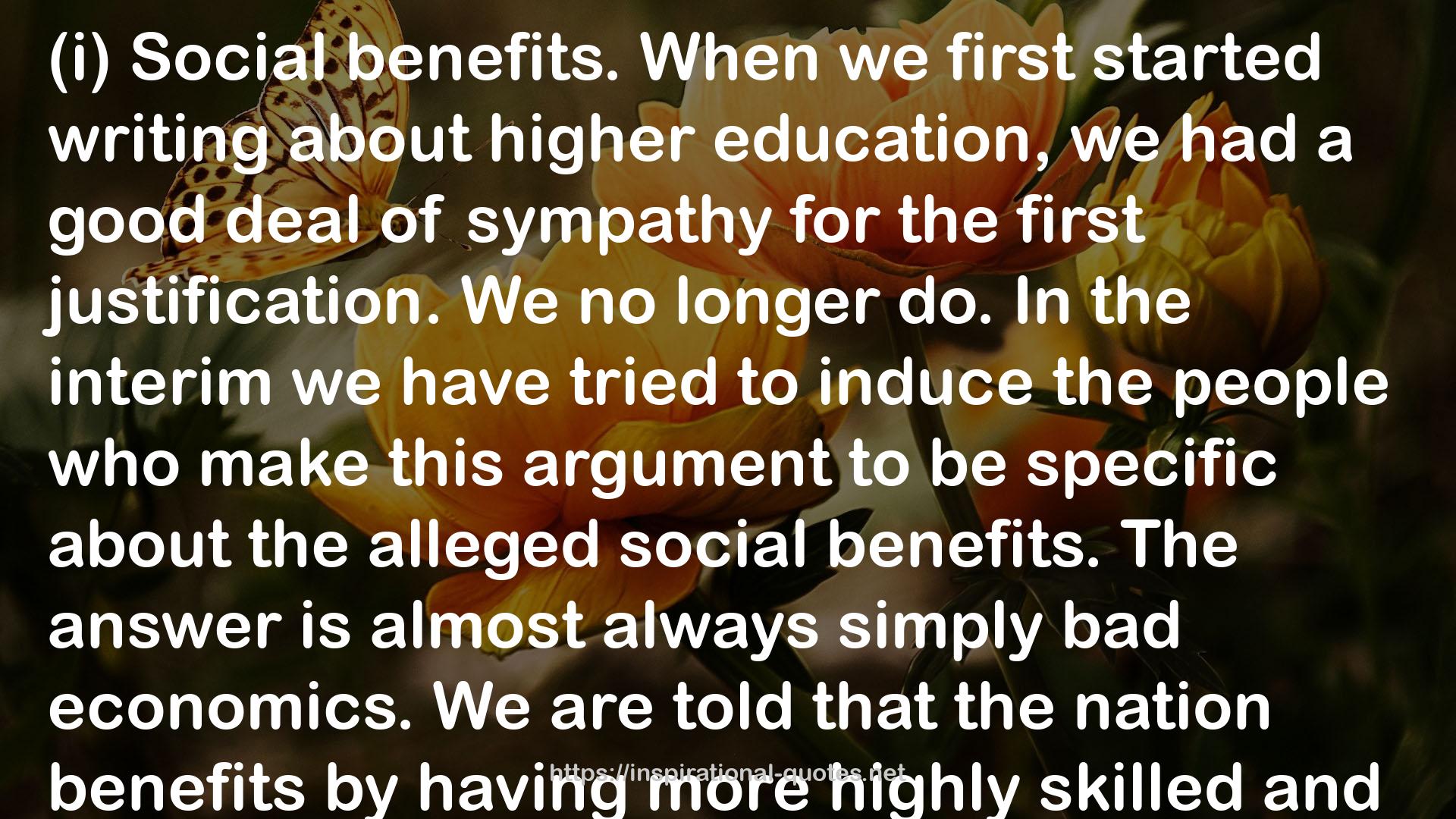" (i) Social benefits. When we first started writing about higher education, we had a good deal of sympathy for the first justification. We no longer do. In the interim we have tried to induce the people who make this argument to be specific about the alleged social benefits. The answer is almost always simply bad economics. We are told that the nation benefits by having more highly skilled and trained people, that investment in providing such skills is essential for economic growth, that more trained people raise the productivity of the rest of us. These statements are correct. But none is a valid reason for subsidizing higher education. Each statement would be equally correct if made about physical capital (i.e., machines, factory buildings, etc.), yet hardly anyone would conclude that tax money should be used to subsidize the capital investment of General Motors or General Electric. If higher education improves the economic productivity of individuals, they can capture that improvement through higher earnings, so they have a private incentive to get the training. Adam Smith's invisible hand makes their private interest serve the social interest. It is against the social interest to change their private interest by subsidizing schooling. The extra students—those who will only go to college if it is subsidized—are precisely the ones who judge that the benefits they receive are less than the costs. Otherwise they would be willing to pay the costs themselves. "
― Milton Friedman , Free to Choose: A Personal Statement
